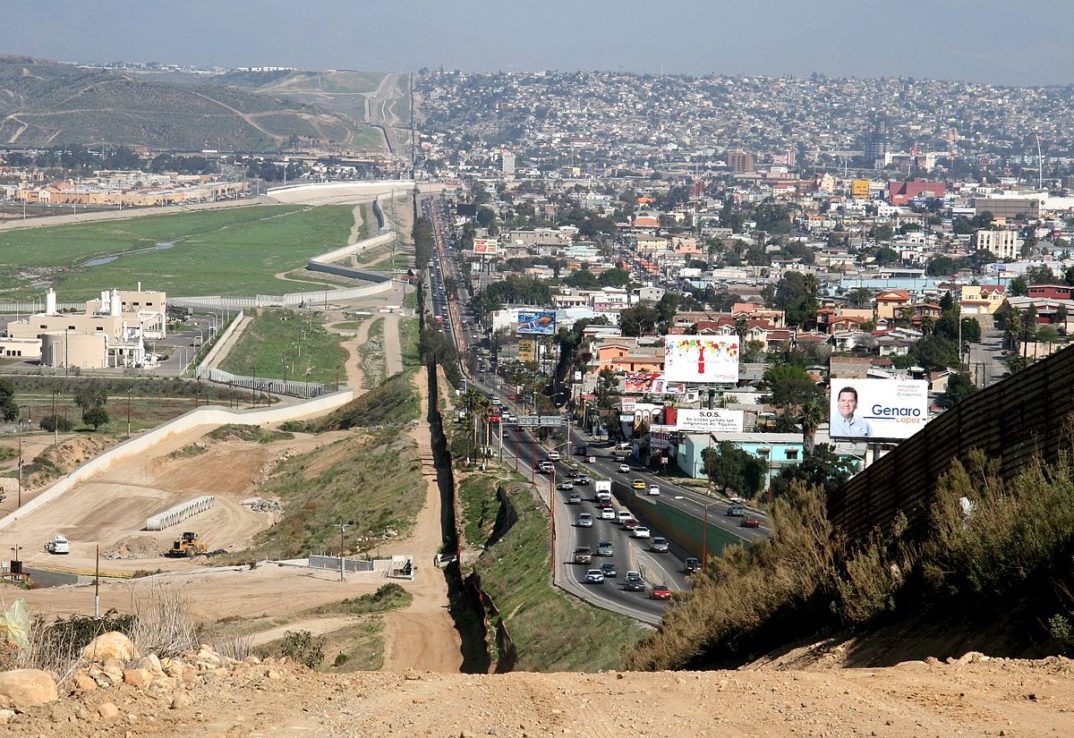The Illegality of Immigration: An Irony
In California, farm owners took a big gamble without knowing it: they voted for Donald Trump. Now, in lieu of receiving a cutback in taxes and regulations, they are at risk of losing their labor force. Thus, their profits might take a hit too, if there are not enough hands to gather the harvest. The danger President Trump poses to California farmers is that, contrary to farm owners’ predictions, he appears to be following through on his campaign promise to curb illegal immigration – and the amount of illegal immigrants in the United States – through mass deportations. The reason why California farmers’ labor force might end up in Trump’s crosshairs is because an estimated 70% of California farmworkers are residing and working in the country illegally. However, it is not just farm owners who would be affected by deportations, but also the local, state, and national economies, which have come to rely on the workers’ spending and manpower.
According to Caitlin Dickerson and Jennifer Medina, two New York Times journalists, agriculture alone reaps a total of $35 billion into California’s economy, and the state provides the most produce out of all 50 states. In addition, local businesses and services, such as restaurants, insurance companies, public schools, and supermarkets, have come to rely on the presence of these ‘illegal’ laborers, since they comprise a significant amount of the population in California’s Central Valley. In addition to Trump’s potential crackdown on ‘illegals,’ California farm owners are already experiencing a labor shortage. Increasing border militarization has dwindled the number of people who migrate to the U.S., as the journey has become more perilous and expensive. These trends had led farmers to rely on government-sponsored immigration programs, like the H-2A visas, which allows them to hire foreign workers seasonally.
The fear – and the potential economic (and social) consequences – that California farmers are experiencing can be contextualized and analysed through the use of Joseph Nevins’ “The Border,” Augusta Dwyer’s “Welcome to the Border” and Jonathan Xavier Inda’s “The Value of Immigrant Life.” These pieces allow us to view farmers’ plight (and that of farm workers) as a trend in the development of the “American” territory and the spatial construction and expansion of the nation-state (and the border). As Inda states, the ultimate goal of the nation-state is to create a “national body”: “…a bounded and distinct community which mobilizes a shared sense of belonging and loyalty predicated on a common language, cultural traditions, and beliefs.”
Inda explains how this “national body” is produced through “political rhetoric in which Third World immigrants are deemed to present a threat to the cultural unity of the nation.” This political rhetoric allows the state to exclude immigrants through a series of practices, which Foucault defines as “biopower.” Through biopower, the state views the social/national body as an organism. The state’s role is to ensure the reproduction and survival of the national body, specifically through acts of exclusion, that seek to eliminate threats or “tumors” (i.e. immigrants) to the national body by purging them. Currently, this political rhetoric could be best described by Donald Trump’s presidential announcement in June 16th, 2015, where he stated that Mexico is sending “rapists” who are “bringing crime” and “drugs” into the United States.
Trump posits Mexican immigrants as the biggest threat to the national body, a trend that Inda recognizes has persisted in the United States throughout the past few decades. Trump’s political rhetoric, and the exclusion of Mexican immigrants, also fits within a historical trend in which illegal migration into the U.S. is tied to “worsening socioeconomic conditions” and crime. As Nevin explains, the United States’s immigration policies have been regulated by the times’ “socioeconomic context and how political actors and institutions mobilize at particular times and places.” This displays how the rhetoric that is being spewed by Mr. Trump is a social construction in which the U.S.-Mexico Border is viewed as a place where “problems” enter, and should therefore be stopped. On the other hand, it implies that those “problems” which have already entered need to be kicked out.
Trump’s words can be seen as the spearhead of biopower, as it is using people’s insecurities and socioeconomic situations to identify and criminalize immigrants, which in turn might lead to actual immigration policies that purge them from the national body. It is the opposite of Operation Gatekeeper in 1994 – an effort by the US government and the Border Patrol to deter illegal migration by militarizing the border in and around urban areas – because public opinion precluded actual immigration policies. President Clinton was emboldened (and forced) by public opinion to take action against illegal immigration. The similarity is that in Trump’s words we see a continuation of these exclusionary practices because the border is maintained as a “divide,” whose purpose is to purify the national body by determining who belongs and who doesn’t belong within the spatial border of the United States.
Turmp’s rhetoric as an exclusionary practice is reflected in the viewpoint of the Federation for American Immigration Reform (FAIR), a group that supported Trump, and whose president expresses how illegal immigration only serves to “depress wages and work conditions” in America. This viewpoint substantiates Trump’s rhetoric as the spearhead of the biopower, because it displays illegal workers as a direct threat to the social body since they only degrade traditional work environments and pay.
Nevertheless, this rhetoric appears to be misguided. Mr. Jeff Marchini, a farm owner in California, states how it is impossible to lure Americans to work into the fields, and stresses the importance of migrants, for whom the jobs that Americans repudiate will always remain readily available for them: “If you find a way to get in here, there’s a need for what you do.” Alas, we can observe how this spatial construction of the United States fails to recognize the economic importance of migration and how the construction of illegality, through political rhetoric and policies, could only thwart the United States’ economy in the long run.





